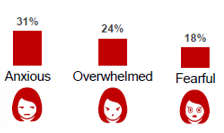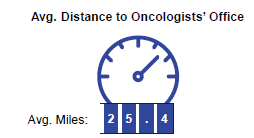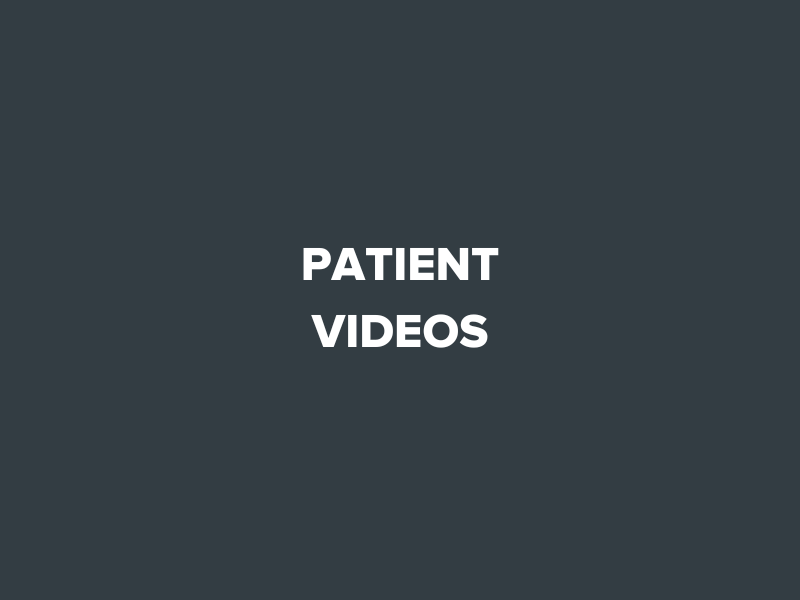A Medicine Company
Health is fundamental to our lives. That’s why we work to make medicines that give people a chance at health. We’re a medicine company turning science into healing.
About [CAMPAIGN NAME]
[CAMPAIGN NAME] focuses on highlighting the impact on daily life of treatment for people with metastatic breast cancer (MBC) as shared by people living with MBC, as well as perspective from healthcare providers. The goal is to identify opportunities to advance care, improve patient experience, and highlight the importance of treatment options for people living with MBC.
As MBC care options have evolved, people living with MBC are living longer. But there is still more progress to be made. One pressing issue for patients is the amount of time spent receiving treatment and recovering from them. This takes time away from daily life, family and friends, work, and other responsibilities, according to a new survey. Patients shared that they often experience treatment side effects, injection site pain and other physical and emotional negatives with current treatment options.
Ipsos and Living Beyond Breast Cancer (LBBC) collaborated to co-author a survey funded by Lilly to better understand the needs of MBC patients.
Metastatic Breast Cancer Patient Survey
What needs of people living with ER+, HER2- MBC are currently not being met?
Ipsos and Living Beyond Breast Cancer (LBBC) partnered to co-author a survey (funded by Lilly) among 100 women aged 35-75 who live with estrogen receptor positive (ER+), human epidermal growth factor receptor 2 negative (HER2-) MBC and are receiving systemic treatment for breast cancer.*

Nearly a third of patients experienced anxiety about their current breast cancer treatment.

Patients commuted an average of 25 miles to their oncologist’s office, spending more than 2 hours of their time, with half of that dedicated to the commute, on their appointment.

These patients often need to accommodate other aspects of their lives in order to attend appointments with their oncologist.

The majority of these patients prefer taking an oral medication daily instead of traveling to their oncologist’s office for treatment. Patients also indicated an oral medication provides them with a sense that they are actively fighting their cancer.
SURVEY OF HEALTHCARE PROVIDERS (HCPs)
Healthcare providers see the impact that limited treatment options has on patients in their practices: in a separate survey, more than two-thirds of oncologists agreed treatment options that can be taken at home can help make healthcare more equitable by making it easier for patients to access treatment.
71% of HCPs are more likely to agree the benefits of an oral treatment option outweigh the barriers, as opposed to just 41% of providers who say the same about intramuscular injections.
85% of HCPs consider health equity when caring for patients with MBC – this sentiment was especially prominent among HCPs who regularly see lower-income patients. 82% of HCPs are interested in learning more about oral treatment options.
Shared decision-making (SDM) occurs when HCPs and patients work together to make treatment decisions, which can lead to improved quality of care and patient experience, as well as more informed and involved patients.
As of 2020, 57.2% of patients over 18 surveyed reported that their healthcare provider always involved them in healthcare decisions.


Media Center




About MBC
Advanced breast cancer includes metastatic breast cancer, meaning cancer that has spread from the breast tissue to other parts of the body, and locally or regionally advanced breast cancer, meaning the cancer has grown outside the organ where it started but has not yet spread to other parts of the body.1
Of all early-stage breast cancer cases diagnosed in the U.S., approximately 30% will become metastatic2 and an estimated 6-10% of all new breast cancer cases are initially diagnosed as being metastatic.3
Survival is lower among women with a more advanced stage of disease at diagnosis: five-year relative survival is 99% for localized disease, 86% for regional disease, and 30% for metastatic disease.4 Other factors, such as tumor size, also impact five-year survival estimates.4
You and your loved ones can help protect yourselves from COVID and the flu by getting vaccinated.10 Ask your healthcare provider about your vaccine options.
*The survey was conducted online by Ipsos on behalf of Lilly and LBBC among 100 women with ER+, HER2- MBC who are age 35 to 75; have a primary diagnosis of advanced, metastatic, or Stage IV breast cancer; are currently seeing an oncologist and receiving systemic treatment for breast cancer; and have never taken fulvestrant. The survey was conducted August 23 to October 18, 2023.
References
1. American Cancer Society. Understanding Advanced Cancer, Metastatic Cancer and Bone Metastases. https://www.cancer.org/treatment/understanding-your-diagnosis/advanced-cancer/what-is.html Accessed January 19, 2024.
2. Lee, Viv. “Types of Breast Cancer: Metastatic Breast Cancer.” BreastCancer.Org. 2024. www.breastcancer.org/types/metastatic. Accessed January 11, 2024.
3. National Library of Medicine. The Clinicopathological Features and Survival Outcomes of Patients with Different Metastatic Sites in Stage IV Breast Cancer. National Institute of Health. 2019. https://www.ncbi.nlm.nih.gov/pmc/articles/PMC6852913/. Accessed January 11, 2024.
4. American Cancer Society. Breast Cancer Facts & Figures 2022-2024. Atlanta: American Cancer Society, Inc. 2022. https://www.cancer.org/content/dam/cancer-org/research/cancer-facts-and-statistics/breast-cancer-facts-and-figures/2022-2024-breast-cancer-fact-figures-acs.pdf. Accessed January 19, 2024.



